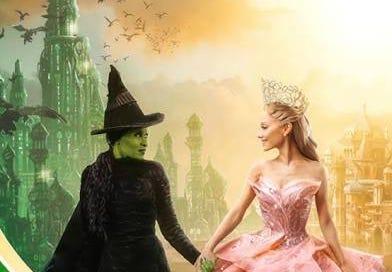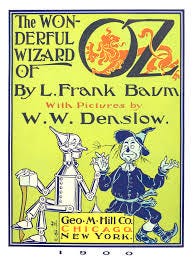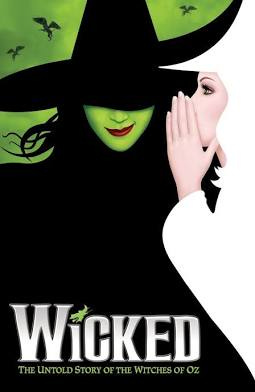Let me begin with a confession that may disqualify me from civilized society: I didn’t like Wicked.
There. I said it. I saw the movie, listened dutifully to the soundtrack afterward in case I’d missed something profound in my Dolby-Atmos-drenched immersive viewing room, and I remain unmoved—save for one mildly catchy song that actually dares to defy gravity (and melody, but I digress).
Now, before Broadway purists hurl emerald slippers at me, let me clarify: I’ve never seen the original stage production. I know, I know. “But how could you judge it?!” Easy. I judged the movie. And I judged it hard. My actor friends—whose taste I usually trust unless they’re in tech week—have gushed about Wicked for years. They speak of it with the reverence typically reserved for Andrew Lloyd Weber or limited-release oat milk. So when the movie finally arrived, I approached it with optimism and a solid working knowledge of The Wizard of Oz lore. I’m not a superfan, but I’ve read Baum’s original novel and appreciate its allegorical brilliance. The source material is, at the very least, interesting.
Unfortunately, “interesting” is not the word I’d use to describe this film. “Exhaustingly beige” might be closer. Or “a kaleidoscope of teal lighting and forgettable melodies.”
The music—the supposed beating heart of any musical—feels like it was composed in a rush on a Casio keyboard set to “Broadway demo mode.” Most songs drift in with no clear melodic identity, attach themselves like musical barnacles to the scene, and then drift off without a trace, like a bad date who just wanted to talk about their dog. At several points I found myself wondering, “Is this a new song or did the last one just refuse to end?”
“Defying Gravity,” I’ll admit, is catchy. Not "whistle-it-in-the-shower" catchy, but certainly the most structurally sound thing in the score. It's got a build. It’s got a hook. It sounds like someone actually cared. Everything else sounds like it came from the folder labeled “Second Drafts We’ll Fix Later.”
As for the plot, it unfolds like a YA novel written in the aftermath of a mid-tier improv class. There’s a lot of emotionally-charged staring, sweeping camera shots, and lines that were clearly designed to sound powerful but mostly sound like they were written by someone trying to impress a thesaurus. I tried, I really tried, to connect with Elphaba’s misunderstood genius and Glinda’s bubbly transformation—but the characters often felt like musical theater archetypes stuck on a treadmill. There’s a sort of generic empowerment message here that feels laminated and mass-produced.
And while the visuals try very hard (like, very hard), there’s a sense that the production is simultaneously too slick and yet underbaked. It’s a weird paradox. Like someone put a $100 million glaze on a story that forgot to finish cooking.
Plot Analysis: A Backstory That Trips Over Its Own Broomstick
In Wicked, we’re asked to reimagine the Wicked Witch of the West not as a villain, but as a misunderstood green-skinned genius with a heart of gold and vocal cords of moderate distinction. It’s a prequel, a reframe, a “what if the bad guy was actually good?” tale that leans heavily on moral ambiguity—without quite knowing what to do with it.
Compared to the 1939 Wizard of Oz, which was a tight, colorful hero’s journey with clear stakes and whimsical charm, Wicked bloats itself with court intrigue, magical racism, an unnecessary love triangle, and enough friendship drama to fill a teenage diary. It wants to be deep. It wants to be meaningful. But mostly it feels like someone trying to explain why Voldemort didn’t get invited to prom.
Now, if we zoom out to Baum’s original novel, which was itself a rich allegory about populism and power wrapped in children’s fantasy, Wicked the movie tries to insert layers that weren't needed and forgets to bring the clarity, pace, or imaginative spark that made Oz compelling in the first place. It’s like it read the footnotes of Baum’s themes and decided to write an angsty fanfic—only with more belting and less logic.
So yes, I know this is an unpopular opinion. I am aware that for millions of fans, Wicked is beloved. It has become a rite of passage. I respect that. But for me, this movie adaptation felt like a parody of a musical written by someone who vaguely remembers what joy sounds like. If this film were an actual spell, it would be one that puts the audience to sleep—perhaps not instantly, but gradually, like a long nap you didn’t mean to take.
In short: if this is what we’ve been waiting for all these years, then maybe we should’ve stayed behind the curtain.








